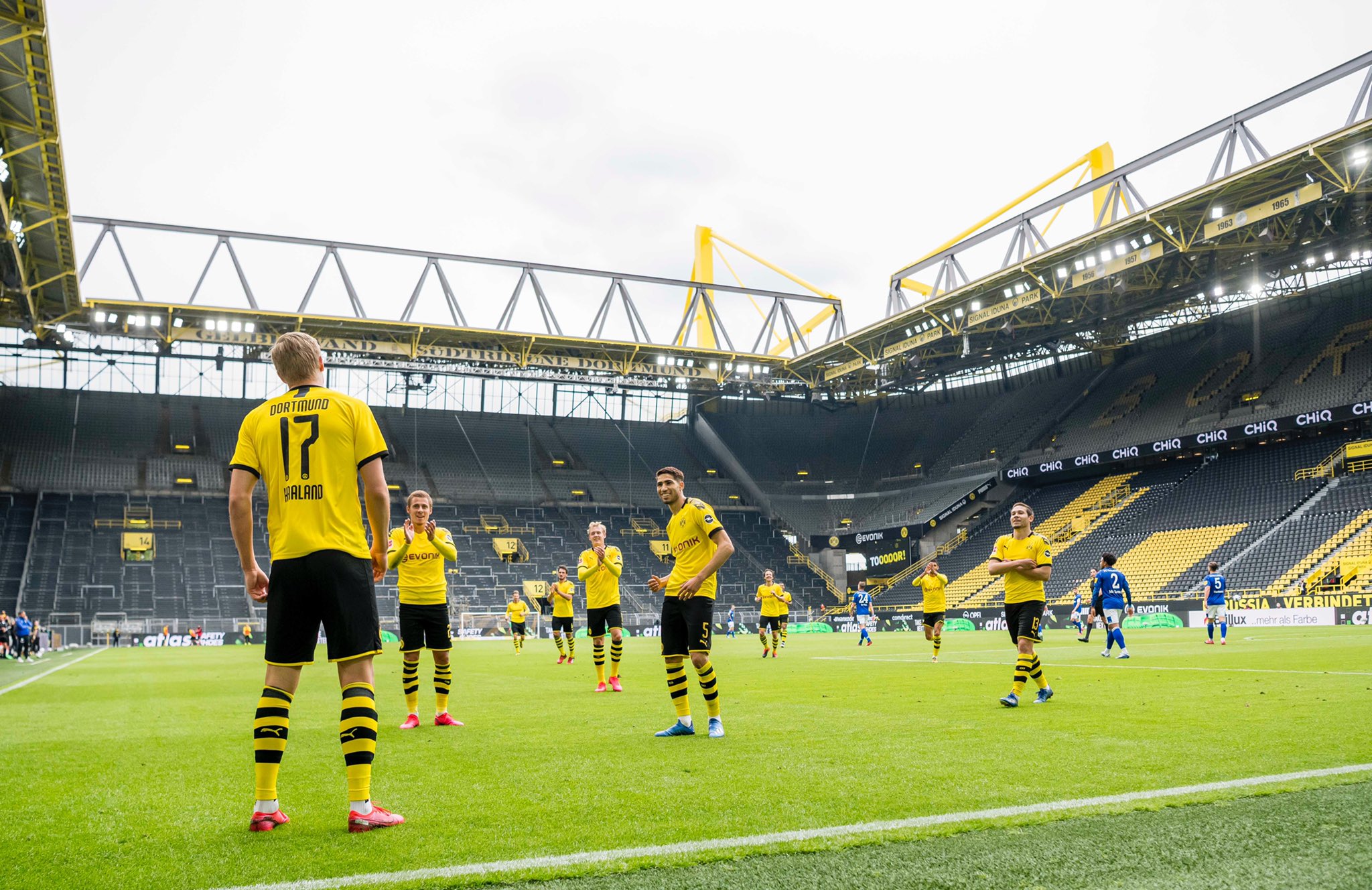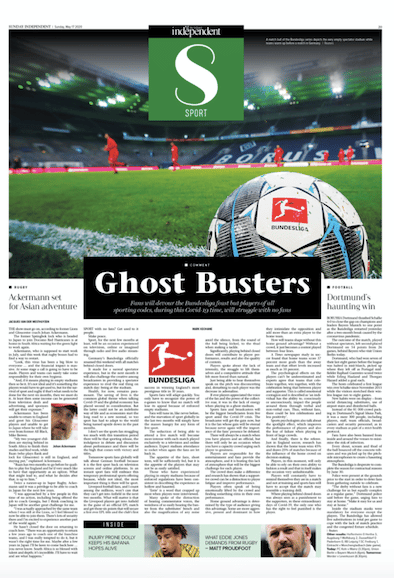Sport, for the next few months at least, will be an occasion experienced on television, online or imagined through radio and live audio streaming, writes Mark Keohane for IOL Sport.
Sport with no fans? Get used to it people.
Make peace.
Germany’s Bundesliga officially resumed this weekend with all matches behind closed doors.
It made for a surreal spectator experience, but in the next month it will also challenge the creative among broadcasters in providing a spectator experience to rival the real thing on match day: being at the stadium.
Health, for now, remains paramount. The saving of lives is the common global theme when talking Covid-19 and the global economy has placed second in consideration. But the latter could not be an indefinite way of life and as economies start the long road to a new normal, so too sport has had to adapt to the world being turned upside down in the past months.
I don’t see the sports fan struggling too much with this transition period there will be that sporting release, the indulgence in debate and discussion about performance and there will be the high that comes with victory and titles.
This Monday sports fans globally will talk about German football because it is the first sport back on television screens and online platforms. In an instant sport fans will embrace this temporary professional sports offering because, while not ideal, the most important thing is there will be sport.
Liverpool football fans, and I count among the millions, won’t care that they can’t get into Anfield in the next two months. What will matter is that the Liverpool players get into Anfield in the guise of an official EPL match and get those six points that will secure a first ever EPL title and the club’s first success in winning England’s most prestigious title in 30 years.
Sports fans will adapt quickly. You only have to recognize the power of e-games to know that no match will lose its appeal because of enforced empty stadiums.
Fans will tune in, like never before, and the starvation of sport globally in the last two months will simply have the masses hungry for any form of live sport.
The seduction of being able to attend a live match will become more intense with each match played exclusively to a television and online audience. Expect stadium attendance to rocket when again the fans are let back in.
The appetite of the fans, short term, will be sufficiently fed, but it is the appetite of the players that may not be as easily satisfied.
Those who have experienced playing in empty stadiums because of enforced regulations have been consistent in describing the experience as hollow and haunted.
‘Eerie’ is a word that cropped up most when players were interviewed.
Many spoke of the distraction of hearing commentator voices, the weirdness of so easily hearing the banter from the substitutes’ bench and also the magnification of any noise amid the silence, from the sound of the ball being kicked, to the thud when making a tackle.
Significantly, playing behind closed doors will contribute to player performance, results and also the quality of contests.
Players spoke about the lack of intensity, the struggle to lift themselves and a competitive attitude that felt more forced than natural.
Just being able to hear themselves speak on the pitch was disconcerting and, disturbing to each player was the decrease in adrenaline.
If ever players appreciated the voice of the fan and the power of the collective roar, it was in the lack of energy when playing in a ghost stadium.
Sports fans and broadcasters will be the biggest beneficiaries from live sport amid the Covid-19 crisis. The broadcaster will get the gain now, but it is the fan whose gain will be eternal because never again will the importance of the fans’ presence be debated.
There will always be a match when you have players and an official, but there will only be an occasion when you have a capacity crowd urging each player to greatness.
Players are responsible for the entertainment and fans provide the atmosphere, and it is beating this lack of atmosphere that will be the biggest challenge for each player.
The crowd does make a difference and research has shown that a supportive crowd can be a distraction to player fatigue and improve performance.
Players often speak of being emotionally lifted by the crowd and finding something extra in their own performance.
Home ground advantage is determined by the type of audience giving this advantage. Some are more aggressive, present and dominant in how they intimidate the opposition and add more than an extra player to the home team.
How will teams shape without this home ground advantage? Without a crowd, it just becomes a contest played between four lines.
A Times Newspaper study in soccer found that home teams score 37 percent more goals than the away team and that effort levels increased as much as 10 percent.
The psychological effects on the players can’t be underestimated and experts agree that teams that celebrate together, win together, with the celebration being that between player and supporter. This is called emotional contagion and is described as ‘an individual has the ability to, consciously or unconsciously, impact the people around them through verbal and non-verbal cues. Thus, without fans, there could be less celebrations and less positivity’.
Sports psychologists also talk about the spotlight effect, which improves the performance of players and also the fear of failure when playing in front of large crowds.
And finally, there is the referee. Just in England soccer, research has shown that the home team wins 45% and draws 25% of matches because of the influence of the home crowd on decision-making.
Players, in this moment, will only be able to rely on their own ability to fashion a result and that in itself makes the occasion very unfashionable.
Players will constantly have to remind themselves they are in a match and not at training and sports fans will have to accept that the match may resemble a training drill.
Where playing behind closed doors was always seen as a punishment to the supporters, in these extraordinary days of Covid-19, the only one who has the right to feel punished is the player.
This Article first appeared in the Sunday edition of The Independent (17 May 2020)






